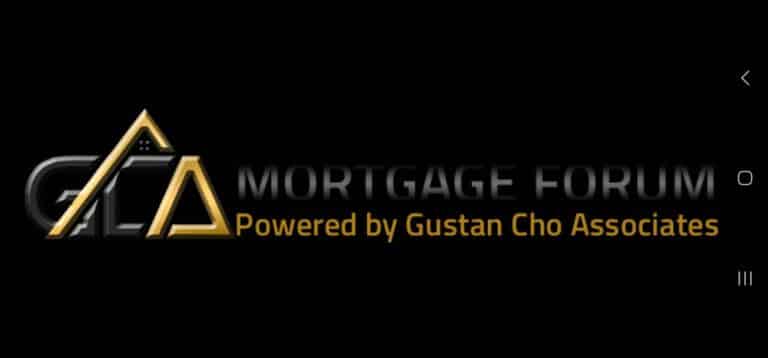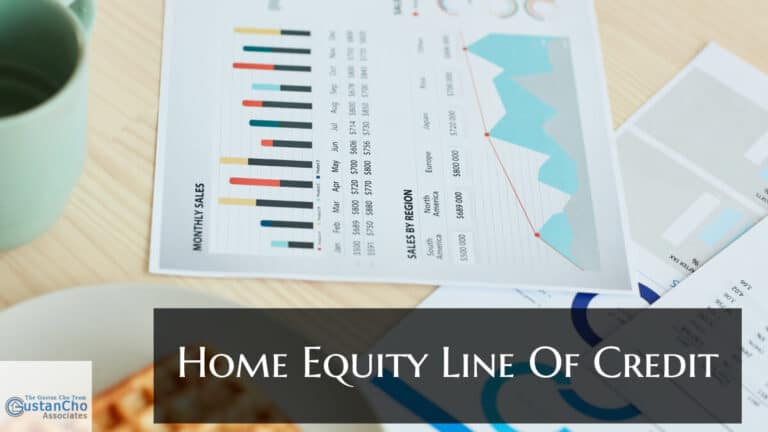What Are Non-QM Versus Qualified Mortgages
In this blog, we will cover and discuss what are non-QM versus Qualified Mortgages. Non-QM loans, also known as non-qualified Mortgages, are non-conforming loans. Non-QM loans are also referred to as non-prime mortgages. Non-qualified mortgages are portfolio loans. Marga Jurialla, the Operations Director for Gustan Cho Associates, explains what non-QM loans are:
By no means are non-QM loans hard money or money from loan sharks. Many borrowers consider what is considered a non-QM loan.
Non-QM portfolio lenders can have a private agreement on a case-by-case basis to sell funded non-qualified mortgages to private investors such as private hedge funds and institutional investors like insurance companies and financial institutions. The next paragraph will discuss the difference between non-QM and qualified mortgages.
What Are Non-Qualified Mortgages?
One of the common frequently asked questions is what is the difference between non-QM versus qualified mortgages. Non-Qualified mortgages, often called non-QM loans, are normally held by portfolio lenders.
Non-QM loans can be sold on a private secondary market, such as to institutional investors, Wall Street, or insurance companies.
Fannie Mae and Freddie Mac do not purchase non-qualified mortgages. Many borrowers with great credit and excellent income opt for non-QM loans. Non-QM loans are not for people with bad credit. Many borrowers with great credit and good income opt for non-QM mortgages. The following paragraphs will discuss non-QM versus qualified mortgages, their benefits, and the lending requirements.
What Are Non-QM Versus Qualified Mortgages
In receiving a mortgage loan for your home, you will encounter two major types of loans. These loans are qualified mortgage loans and non-qualified mortgage loans. There are no major differences between non-QM versus qualified mortgages. Non-QM mortgages are not hard money loans.
What Is a Non-QM Loan?
A Non-QM loan, or a non-qualified mortgage, allows you to qualify based on alternative methods instead of the traditional income verification required for most loans. Common examples include bank statements or using your assets as income.
Non-QM loans are portfolio loans and by no means hard money loans. Many people think non-QM loans are for borrowers with bad credit. Non-QM loans are not only for sub-prime borrowers.
Good credit, wealthy, high-income borrowers often choose non-QM versus qualified mortgages. Today’s subject matter is non-qualified mortgage loans, also known as non-QM loans, and frequently asked questions regarding them.
What Is Considered a Non-QM Loan?
You will receive these loans if you can not provide all the necessary documentation for a qualified mortgage loan. Many different types of people, under many different circumstances, may not be able to provide satisfactory documentation. This is due to the CFBP (Consumer Financial Protection Bureau) providing guidelines to make receiving a mortgage loan as a borrower and giving one as a lender safer and easier.
What Are Non-QM Loans
A non-QM loan is a mortgage loan that does not fall under the guidelines of the Consumer Financial Protection Bureau. The missing documentation that the borrower has to provide to the lender can lead to less reassurance from the lender on if the borrower can pay the loan back in full. This is why non-qualified mortgage loans are typically harsher in their terms and conditions.
Non-QM Mortgage Options and Loan Programs
Many different types of non-qualified mortgage loans exist because many different documentation requirements exist, and in different situations, different documentation will be unable to be provided by the borrower. These include asset qualifier home loans, bank statement loans, investor cash flow home loans, ITIN mortgage loans, 1099 income loans, Jumbo home loans, and foreign national program loans.
What is an Asset Qualifier Home Loan?
An asset-qualifier home loan is a loan type that falls under non-qualified mortgage loans. These asset qualifier loans allow for a mortgage using your liquid assets instead of income for proof of ability to pay.
Liquid assets can be considered your bank accounts, including checking or savings accounts, retirement funds, or investment accounts.
If you have many liquid assets but generate little or no income, an asset qualifier home loan might be the strongest choice for your financial safety. Many different types of non-qualified mortgage loans exist, all to fit unique situations where certain documentation is unavailable.
What is a Bank Statement Loan?
A bank statement loan is another type of non-qualified mortgage loan that allows self-employed borrowers to receive a mortgage loan using a bank statement instead of tax returns, W-2s, or pay stubs. You might hear a bank statement loan, a self-employed mortgage loan, or an alternative documentation loan.
Bank Statement Loans For Self-Employed Borrowers
Bank statement loans are the perfect solution for self-employed individuals with no documentation of a steady income or those with more than one employer. Proving your income through documentation can be difficult in these circumstances. Many self-employed individuals have messy documentation regarding tax return documentation. This is why the bank statement loan is available for them.
What is an Investor Cash Flow Home Loan?
An investor cash flow home loan is a non-qualified mortgage loan that helps if you fall into the category of a real estate investor looking to grow your investment portfolio and gain more properties. You can use the cash flow from your currently owned homes to gain approval for a mortgage loan. Depending on your chosen lending company, you may not need to provide tax returns or employment information to get an investor cash flow loan.
What Are 1099 Income Loans?
A 1099 income loan is a non-qualified loan for 1099 earners without a qualified mortgage. This can include those who do freelance work, independent contractors, gig workers, or any other individual with an employment type who has to file a W-9. Borrowers can apply their 1099 earning statements instead of using tax returns to verify their income and become eligible for this mortgage loan.
What Are ITIN Mortgage Loans?
An Individual Tax Identification Number (ITIN) mortgage is a loan type that assists borrowers not yet eligible for Social Security numbers. When an individual living in the United States do not qualify to get their Social Security number, instead, they will be issued an ITIN. ITIN is typically used in place of SSN for the purpose of identification.
ITIN Mortgage Guidelines By Non-QM Lenders
This type of loan allows immigrants to own property in the United States without possessing a Social Security number. Requirements for an ITIN mortgage vary by the lending company you choose, so research the company before applying. But the one constant is requiring the ITIN for identification.
What is a Foreign National Program Loan?
Foreign nationals can find themselves in a situation where it is troublesome to purchase or refinance a home in the United States due to their lack of documentation. Fortunately for them, foreign national programs can help protect non-citizens or individuals who are resident aliens to purchase their first property, second property, or another property for investment.
What Are Jumbo Home Loans?
A Jumbo home loan is a mortgage type that goes over the amount set by the Federal Housing Agency. A loan is considered a Jumbo loan if it exceeds the loan-servicing limit of $647,200 for a single-family home as of 2022. This loan product is perfect for financially well-off homebuyers looking to acquire or refinance higher-priced properties.
What is the Role of The CFPB
As stated before, the Consumer Financial Protection Bureau regulates mortgage loans to make the safest environment possible for the financial protection of both the lender of a mortgage loan and the borrower of the loan. These qualified mortgage loans are less harsh with the terms and conditions of the loan taken.
The Consumer Protection Financial Bureau also helps consumers by providing educational materials and accepting complaints.
The role of the CFPB is to supervise banks, lenders, and large non-bank entities, such as credit reporting agencies and debt collection companies. The Bureau also tries to make credit card, mortgage, and other loan disclosures easier to understand so consumers can understand what is expected of them and what to expect from the lending company.
How to Find Non-QM Lenders?
Most lending companies you come across offer non-QM loans as options for payment. However, not all lending institutions offer them. Some agencies specifically deal with low to middle-income borrowers.
State housing finance agencies, nonprofits, and community development financial institutions are not required to abide by some rules to ensure you can repay the loan. This allows for a higher DTI or lower credit score than a qualified loan.
Smaller lending companies with less than a couple million in assets, creating less than 500 loans per year, are exempt from abiding by the QM loan guidelines. There is no debt-to-income limit for small lending companies. A mortgage lender can also offer non-QM loans. These will come with higher interest rates and higher fees.
Are Credit Unions Good Non-QM Mortgage Lenders?
A credit union doesn’t always sell their loans, so they are more lenient on guidelines, meaning they don’t need to qualify. A loan officer will try to work with you if you are already a credit union member. You need to review your financial standing and goals to understand what type of Non-QM loan you need.
How To Choose The Best Non-QM Mortgage Lenders
When it’s time to find a lender, you must shop around to see who offers what types of programs for your needs. You can gather information from various lenders and speak to as many loan officers as needed. Find a lender specializing in non-QM loans and assist individuals with a lower credit score.
Non-QM Versus Qualified Mortgages To Start The Mortgage Process
What documentation is required for mortgage loans? The basic rule of qualified mortgage documentation is the ability to repay. The documentation and records the lending institution will ask for must ensure that the borrower can repay the mortgage loan fully. The exact documentation can vary based on the lending company chosen.
Documents Required on Non-QM Versus Non-Qualified Mortgages
The documents required include a social security number, credit score, a DTI of less than 43%, and a steady income. If the borrower cannot verify or provide these fields, the only option is to take a non-qualified mortgage loan. There are many different types of non-qualified mortgage loans because any one piece of documentation missing can bring up a different situation that a non-qualified mortgage loan has to be able to work in.
ITIN Mortgage Eligibility Requirements
For example, the ITIN loan is a non-qualified mortgage loan that uses a person’s ITIN number in place of a social security number if the individual does not own a social security number. Situations like these occur all the time, so do not feel discouraged if you find yourself in a situation where you do not qualify for the traditional loan style. If you can not get approved for a qualified mortgage loan, a non-qualified mortgage loan will likely exist for your situation.
What Is The Difference Between Non-QM Versus Qualified Mortgages
What is the difference between non-QM versus qualified mortgages? As covered previously, a qualified mortgage loan has stricter documentation requirements than a non-qualified one. However, this is not the only difference between the two styles of loans.
The terms and conditions from the lending company are typically much harsher towards the lender in a non-qualified mortgage loan. There are more non-traditional documents required on non-QM versus qualified mortgages.
This is because they could not confirm your ability to repay with a qualified loan, so no lender would give out a loan. They were unsure if they would make the money back. Due to this, they have more freedom and flexibility with what they can do with the loan.
Mortgage Rates on Non-QM Versus Qualified Mortgages
Non-QM loans usually come with high interest rates and fees due to the lending risk associated with the lack of documentation you could provide. This means you may end up paying more in interest.
Non-qualified mortgage loans are also difficult to find. Not all mortgage lenders offer non-QM loans. Since not all mortgage lenders offer non-QM loans, lenders that offer non-QM mortgages may be more difficult to find.
Not all non-QM mortgage lenders are the same. Each non-QM wholesale mortgage lender has their own individual lender requirements. You can search the internet for non-QM lenders and research before choosing your lending company.
Risk Factors on Non-QM Qualified Mortgages
Greater risk of default also exists in non-QM loans, such as interest-only mortgages, where you’re required to pay only interest on the loan over a certain period of time, which may increase your risk of defaulting. Higher down payments. Down payments for non-QM mortgage loans are usually higher than other mortgage products.
Lenders require a sizable down payment to lower their lending risk in case you cannot pay. Lenders have higher lending requirements on non-QM versus qualified mortgages.
Non-QM loans are considered riskier loans for lenders. Borrowers who take out non-QM versus qualified mortgages do not meet agency-conforming guidelines. Typical borrowers who benefit from non-QM versus qualified mortgages are self-employed homebuyers, borrowers without traditional income, or borrowers who cannot qualify due to excessive unreimbursed business expenses.
Summary About Non-QM Versus Qualified Mortgages
The two major types of mortgage loans you will find when trying to purchase a property are qualified mortgage loans and non-qualified mortgage loans. The major difference between these two types of mortgage loans is that a non-qualified mortgage loan is much easier to receive but also riskier with harsher conditions.
Non-qualified mortgage loans are easier to obtain because they require less documentation to be approved.
Due to the lack of documentation, the loan has much harsher terms for the borrower. This is not the way of qualifying for mortgage loans because of the guidelines put in place by the CFPB. These guidelines protect the borrower while being fair to the lender.
Mortgage Documentation on Non-QM Versus Qualified Mortgages
They require a list of documentation that assures the lender that you can pay the loan to completion. And they also put in place rules on what the lender can and can not do with the loan. This balance is why a qualified mortgage loan is always the best option if you are a borrower looking for a mortgage loan. But even though it is not the best option, a non-qualified mortgage loan of any type is still a path for you to own a home.
Frequently Asked Question What Are Non-QM Versus Qualified Mortgages
1. What does Non-QM versus Qualified Mortgages mean?
Non-QM versus Qualified Mortgages compares two types of home loans. Qualified Mortgages follow strict federal lending guidelines that require lenders to verify the borrower’s ability to repay the loan. Non-QM mortgages offer more flexible options for borrowers who don’t meet those standard guidelines, such as self-employed borrowers or investors.
2. How do Non-QM versus Qualified Mortgages differ?
The biggest difference between non-QM and Qualified Mortgages is flexibility. Qualified Mortgages require full income verification and limit loan features, while non-QM mortgages allow for alternative documentation like bank statements, higher debt-to-income ratios, and interest-only payment options. Non-QM mortgages are ideal for borrowers with unique financial situations.
3. Are Non-QM versus Qualified Mortgages safer?
Safety of non-QM versus Qualified Mortgages depends on your financial profile. Qualified Mortgages have built-in consumer protections. Non-QM mortgages, while flexible, require careful planning and understanding of terms. Partnering with a knowledgeable lender can help you decide whether non-QM versus Qualified Mortgages is the right choice for your needs.
4. Who should consider Non-QM versus Qualified Mortgages?
Borrowers such as self-employed individuals, real estate investors, and those with recent credit issues often compare non-QM mortgages to Qualified Mortgages. If you cannot qualify under strict QM rules, non-QM mortgages may give you a better chance to secure a loan.
5. Why is it essential to understand Non-QM versus Qualified Mortgages?
Knowing the difference between Non-QM and Qualified Mortgages helps borrowers find the best loan for their situation. If you want flexibility in income documentation, credit score, or property type, non-QM mortgages may be your best option. Qualified Mortgages offer traditional advantages and protections for borrowers with strong credit and stable income.







